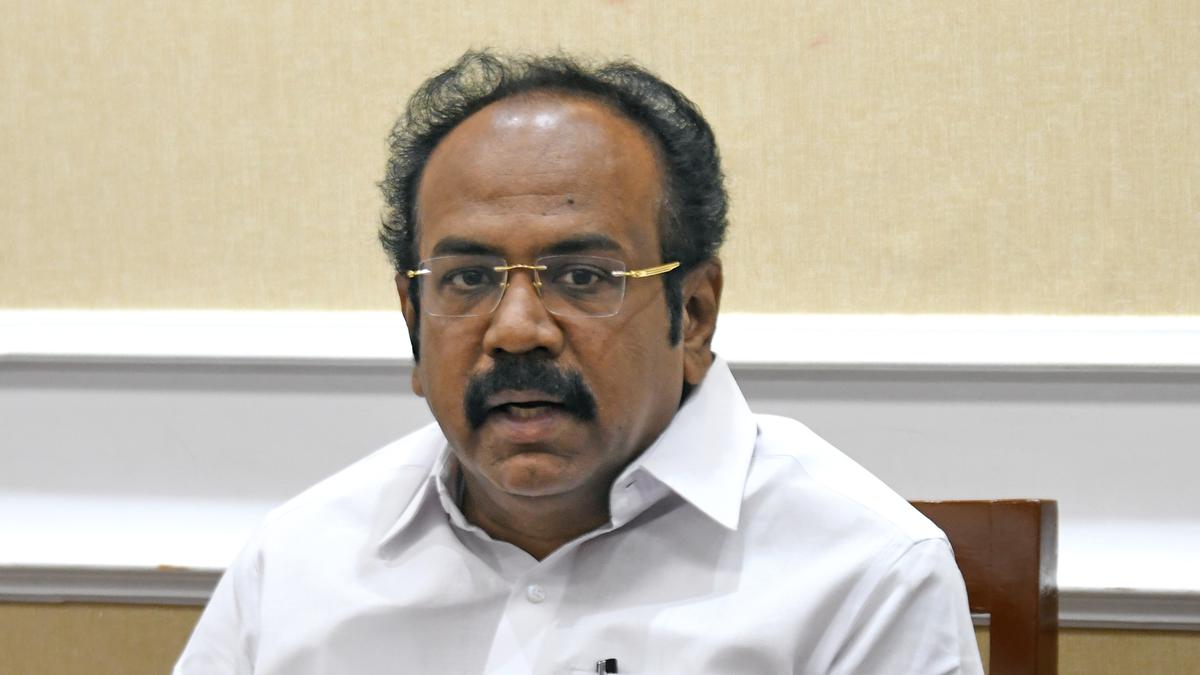
T.N. to “disregard” Governor’s decision; CM Stalin to reiterate his prerogative to retain Senthilbalaji as Minister
The Hindu
The Tamil Nadu government has decided to “disregard” the communication of Tamil Nadu Governor R.N. Ravi dismissing Minister V. Senthilbalaji from the Council of Ministers (the communication has since been kept in abeyance), Finance Minister Thangam Thennarasu said in Chennai on Friday. The Governor’s action was untenable in law, he said.
The Tamil Nadu government has decided to “disregard” the communication of Tamil Nadu Governor R.N. Ravi dismissing Minister V. Senthilbalaji from the Council of Ministers (the communication has since been kept in abeyance), Finance Minister Thangam Thennarasu said in Chennai on Friday. The Governor’s action was untenable in law, he said.
On the evening of June 29, 2023, Mr. Ravi had unilaterally “dismissed with immediate effect” arrested Minister V. Senthilbalaji from the Council of Ministers, only to hurriedly backtrack on his decision late in the night. In a later communication to the CM, Mr. Ravi said he had been advised by Union Home Minister Amit Shah to seek the opinion of the Attorney General, and therefore, the order of dismissal of Minister Senthilbalaji could be kept in abeyance.
Addressing journalists, accompanied by Law Minister S. Regupathy and DMK Rajya Sabha MP P. Wilson, Mr. Thennarasu said Chief Minister M.K. Stalin would reiterate to the Governor that it is the prerogative of the CM to retain or drop a Minister from the Council of Ministers.
Responding to a query on the Governor’s apprehensions that Mr. Senthilbalaji continuing in the T.N. Council of Ministers would influence the ongoing investigation by the Enforcement Directorate and the State police, Mr. Thennarasu pointed out that the Minister was in judicial custody, and asked how this could happen.
Mr. Thennarasu questioned the “singling out” of Mr. Senthilbalaji. He charged there were “ulterior political motives” behind the action against the Minister, who is now without a portfolio. Mr. Thennarasu referred to “at least 11 cases” pending against serving Union Ministers and pointed out that they continued to be part of the Union Cabinet.
To a query on the Governor’s contention that the CM, in a letter to him, used “intemperate language”, Mr. Thennarasu maintained that Mr. Stalin was “most courteous” and had always ensured the dignity of the office of the Governor.
Mr. Thennarasu also said the government was not opposed to a fair investigation against Mr. Senthilbalaji.

“Writing, in general, is a very solitary process,” says Yauvanika Chopra, Associate Director at The New India Foundation (NIF), which, earlier this year, announced the 12th edition of its NIF Book Fellowships for research and scholarship about Indian history after Independence. While authors, in general, are built for it, it can still get very lonely, says Chopra, pointing out that the fellowship’s community support is as valuable as the monetary benefits it offers. “There is a solid community of NIF fellows, trustees, language experts, jury members, all of whom are incredibly competent,” she says. “They really help make authors feel supported from manuscript to publication, so you never feel like you’re struggling through isolation.”

Several principals of government and private schools in Delhi on Tuesday said the Directorate of Education (DoE) circular from a day earlier, directing schools to conduct classes in ‘hybrid’ mode, had caused confusion regarding day-to-day operations as they did not know how many students would return to school from Wednesday and how would teachers instruct in two modes — online and in person — at once. The DoE circular on Monday had also stated that the option to “exercise online mode of education, wherever available, shall vest with the students and their guardians”. Several schoolteachers also expressed confusion regarding the DoE order. A government schoolteacher said he was unsure of how to cope with the resumption of physical classes, given that the order directing government offices to ensure that 50% of the employees work from home is still in place. On Monday, the Commission for Air Quality Management in the National Capital Region and Adjoining Areas (CAQM) had, on the orders of the Supreme Court, directed schools in Delhi-NCR to shift classes to the hybrid mode, following which the DoE had issued the circular. The court had urged the Centre’s pollution watchdog to consider restarting physical classes due to many students missing out on the mid-day meals and lacking the necessary means to attend classes online. The CAQM had, on November 20, asked schools in Delhi-NCR to shift to the online mode of teaching.









